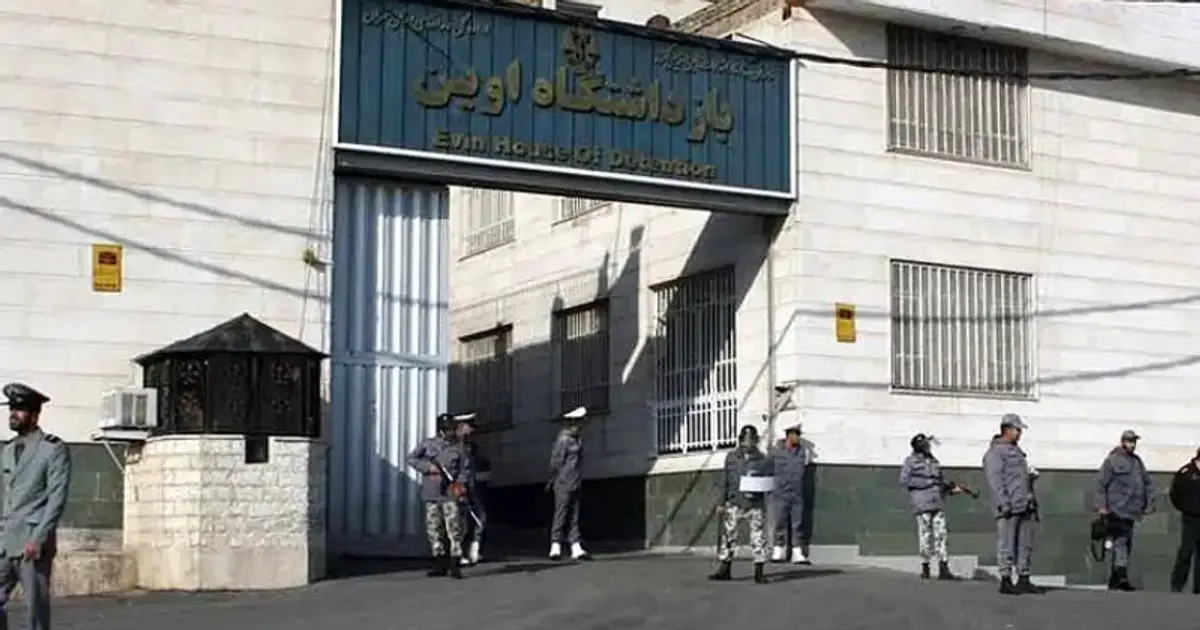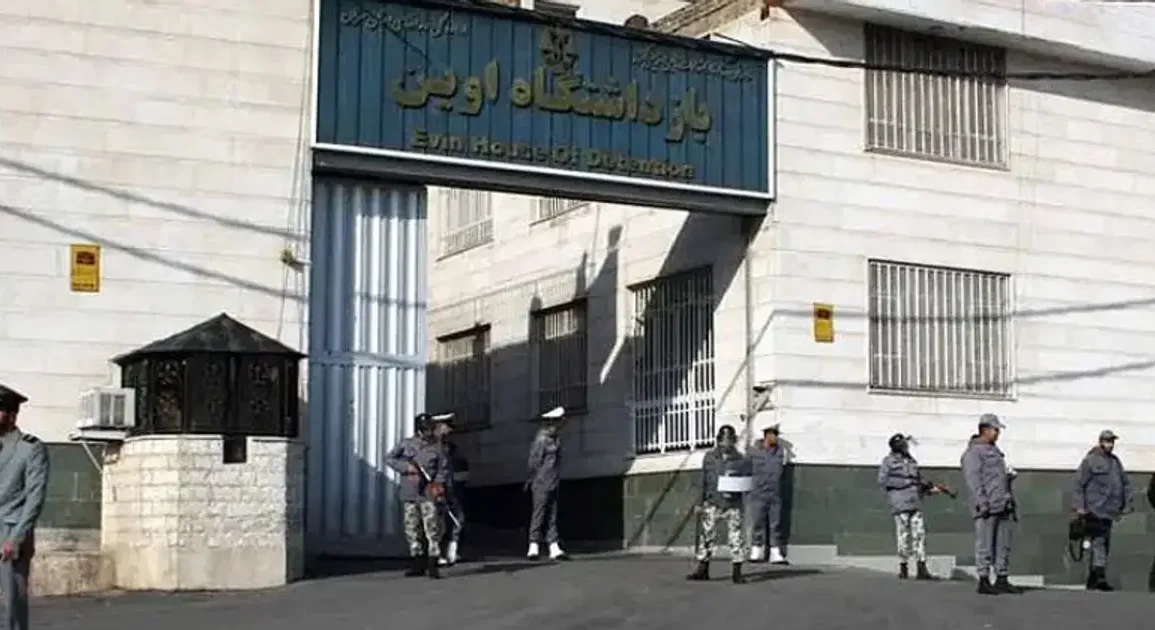
A group of female political prisoners in the women’s ward of Tehran’s Evin Prison were assaulted by prison guards on Tuesday, after staging a protest against the execution of Iranian dissident Reza Rasaei.
Rasaei, who was executed earlier that morning in western Iran, had been arrested during the nationwide 2022 protests. His execution sparked widespread global condemnation including protests by political prisoners at Evin.
According to information obtained by Iran International, the protest at Evin women’s ward began when the prisoners received news of Rasaei’s execution. They gathered in the prison courtyard, chanting slogans against the death penalty. The protest was met with a violent response from prison authorities, led by Hadi Mohammadi, the deputy officer in charge. Guards, acting on the deputy’s orders, violently dispersed the protesters, severely beating several women.
Among the injured was Nobel Peace Prize laureate Narges Mohammadi, who suffered a “respiratory attack and intense chest pain, causing her to collapse and faint,” after being beaten by prison guards along with several other inmates, according to a statement released by her family on Thursday.
“The women’s ward was flooded with armed guards, and an order was issued to assault the protesters. Several women who stood in front of the security forces were severely beaten. The confrontation escalated, resulting in physical injuries for some prisoners and nervous breakdowns for others,” the statement said.
Nobel Peace Prize laureate Shirin Ebadi has sounded the alarm over the safety of political prisoners in Evin Prison, including Narges Mohammadi and journalist-activist Sarvenaz Ahmadi.
“The lives of Narges Mohammadi, Sarvenaz Ahmadi, and all political prisoners in various prisons are in danger. They are paying the price for the insatiable totalitarianism of the Islamic Republic,” Ebadi said in a post on Instagram.
Political prisoner Varisheh Moradi, who is facing charges that could result in the death penalty, was also among those injured during the assault. After being beaten by the officers, she sustained a serious wrist injury, and bruises across various parts of her body.
Sarvanaz Ahmadi collapsed from a panic attack, while Samaneh Asghari, Reyhaneh Ansarinejad, and Sepideh Qoliyan were kicked and spat on by officers. Sarina Jahani and Mahboubeh Rezaei suffered severe beating, leaving them with splinted hands and intense pain. Nasrin Khazari Javadi, Houra Nikbakht, and Rana Korkur fainted during the assault, requiring oxygen treatment. Parivash Moslemi was also severely beaten, causing extensive bruising and pain.
Despite sustaining injuries, at least 15 of the prisoners have been denied medical care and have not been transferred to the hospital for treatment.
UN High Commissioner for Human Rights condemns Iran’s executions surge
This incident occurred amidst an alarming increase in executions in Iran, drawing international concern. Despite global condemnation of Rasaei’s execution, at least 29 more people were executed just a day later, on Wednesday.
On Friday, the UN High Commissioner for Human Rights, Volker Turk, expressed extreme concern over reports that Iranian authorities had executed 29 people in the last two days. “This represents an alarmingly high number of executions in such a short period of time,” said UN Human Rights Office spokesperson Liz Throssell.
Though the death toll could not be independently verified by the United Nations, the reported executions bring the total number to at least 345 this year, including 15 women.
Throssell also highlighted the disproportionate impact of these executions on minorities, including Kurds, Hawassi Arabs, and Baluch, and condemned the use of the death penalty for drug-related offenses. “Imposing the death penalty for offenses not involving intentional killing is incompatible with international human rights norms and standards,” she stated.
The crackdown on Evin’s prisoners and the broader surge in executions reflect the ongoing human rights crisis in Iran, despite the election of President Masoud Pezeshkian in July. Since his election, at least 87 people have been executed, raising further concerns about the future of human rights under his administration.
Last year Amnesty International reported that of all recorded executions globally, Iran accounted for 74% with at least 853 people put to death.
This post was originally published on this site be sure to check out more of their content.







